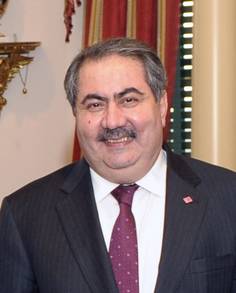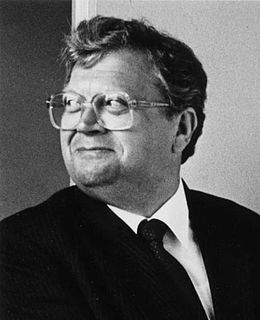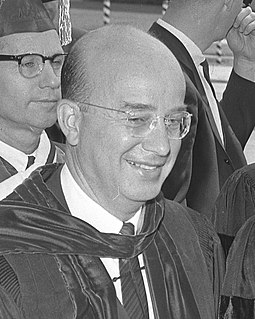A Quote by Ha-Joon Chang
The truth is that the free movement of goods, people, and money that developed under British hegemony between 1870 and 1913 - the first episode of globalization - was made possible, in large part, by military might rather than market forces.
Related Quotes
We must continue to liberalise the single market, cut red tape and basically create a digital single market. We have not completed the single market yet, there is not sufficient free movement of goods, labour, services and money. We have to keep on working at that against all the protectionist tendencies that we have right now.
One of the most important features of our economic resources is their scarcity: land, labor, and capital goods factors are all scarce, and may all be put to various possible uses. The free market uses them 'productively' because the producers are guided, on the market, to produce what the consumers most need: automobiles, for example, rather than buggies.
Globalization, meaning the global expansion of a market economy, is the only way we can guarantee widespread prosperity and peace. A lot of nations are just so small, that unless they can sell their goods and services on the market they're never going to develop, they don't have an internal market that's big enough to sustain anything.
We are the only major developed nation that isn't investing meaningfully in high-speed rail, and I believe we're making a mistake. Transportation systems that are fast and efficient and environmentally clean are going to enable the formation of these new mega-regions, the heart of the spatial fix. We need to be able to accelerate the movement of people, goods, and services - the very movement of ideas, knowledge, and creativity - between our major population centers. We have to build these links.
A considerable proportion of the developed world's prosperity rests on paying the lowest possible prices for the poor countries' primary products and on exporting high-cost capital and finished goods to those countries. Continuation of this kind of prosperity requires continuation of the relative gap between developed and underdeveloped countries - it means keeping poor people poor. Increasingly, the impoverished masses are understanding that the prosperity of the developed countries and of the privileged minorities in their own countries is founded on their poverty.
I think that the movement against the World Bank, against the globalization process that is happening, is very positive. We need a globalization, a globalization of people who are committed to social justice, to economic justice. We need a globalization of people who are committed to saving this earth, to making sure that the water is drinkable, that the air is breathable.
New Zealand’s nuclear free movement is a broad-based and popular movement. Our nuclear free status is a challenge to much that is accepted as orthodox in international relations. It was formally adopted in the cold war era as a form of resistance to the dismal doctrines of nuclear deterrence. It is still a rebuke to the unprincipled exercise of economic power and military might.
The essence and the glory of the free market is that individual firms and businesses, competing on the market, provide an ever-changing orchestration of efficient and progressive goods and services: continually improving products and markets, advancing technology, cutting costs, and meeting changing consumer demands as swiftly and as efficiently as possible.



































